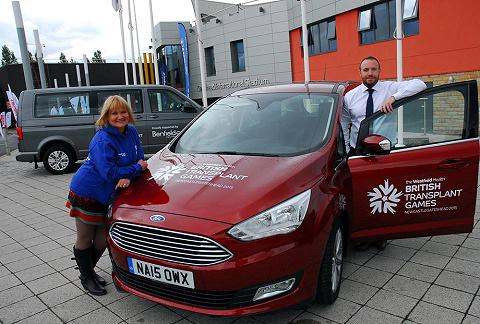
On 29th March 2019, the United Kingdom will leave the European Union. Approaching the end of 2018, this significant date doesn’t seem so long away anymore, and yet, we don’t seem any closer to understanding what sort of Brexit we will be barking on. A “hard” Brexit? A “soft” Brexit? Or a “no-deal” Brexit?
With all this confusion abound, it’s not surprising to hear that less than a third of UK businesses have a contingency plan in place in the event of a no-deal Brexit, but it is concerning.
A no-deal Brexit is probably the worst-case scenario for many, but it would hold a silver living in that trade deals could be freely discussed between the UK and the rest of the world. It would not affect trade with countries outside the European Union, which is precisely what the UK seems to be planning for with its Prime Minister having recently visited China for talks.
But is a trade deal with the UK worth it for China? After all, in 2016, the UK imported £42.3bn worth of goods from China, but exported only £16.8bn to China in return. But then again, that’s not entirely proof that China wouldn’t increase its British exports demand if a trade deal was in place — the country is already hoping to widen its trade with The Belt and Road Initiative.
China is hoping that the initiative will forge strong trade ties between Asia and the rest of the globe. The “belt” side of it roughly equates to the land connections it will build through railroads, and the “road” refers to a sea-route of trade. Essentially, China is building a new Silk Road, and 71 countries are already part of the project, including Russia and New Zealand.
But support of the Belt and Road among British officials has been varied, says Business Insider UK. Where Prime Minster Theresa May has not pledged support to the project that she feels isn’t a guaranteed success, Chancellor Phillip Hammond expressed his support of it.
As Britain’s links to China shift, the opinions regarding the Belt and Road Initiative may change too. In fact, we have already enjoyed success in China before Brexit has even resolved. At the start of 2018, during talks between the UK and China, the 20-year ban on British beef was lifted. The deal is purported to be worth £9bn to the UK.
UK beef was subject to a worldwide export ban from the EU in response to a “mad cow disease” outbreak. It wasn’t until 2006 that the EU lifted the ban, but other countries chose to retain their ban on the product, including China.
What other imports from Britain does China covet? What markets and UK businesses could, potentially, fare well with Chinese consumers? According the Telegraph, top British exports the Chinese enjoy are:
- British cars
- Burberry, and other designer labels
- Scotch whisky
- Scottish salmon
You may think only big brands have a chance at breaking into the Chinese market, but evidence shows smaller brands can certainly have success there. The Creative Industries reported on the success of hairbrush and haircare brand Tangle Teezer over in China. Tangle Teezer’s International Managing Director, Gemma Clarke, confirmed in the article that China became its second biggest sales market in only 3 years trading there.
Tangle Teezer has enjoyed success in China thanks to a famous Chinese model buying and sharing the product on social media. China loves its online shopping, so influencers should not be overlooked when planning to cater to the Chinese market.
The Chinese market can be very profitable for British businesses. At the very least, firms need to plan for the eventual shake-up to the UK’s ties with the European market once Brexit comes into play, and time is running out to start building the foundations. This small window of golden opportunity has been highlighted by Rebecca De Cicco in regards to the UK’s construction industry in particular. The director of Digital Node outlined how 70% of buildings over 200 metres tall completed in 2017 were built in China, and so the country is increasingly interested in building information management software and crowd simulation. The use of British construction software has already proved its value to the Chinese construction sector in Beijing’s new airport, the Beijing Daxing International. Projected to see 45 million passengers a year, the airport’s construction has benefited from crowd simulation software provided by UK structure analysis software experts, Oasys. The software alerted the construction company and designers to any potential bottlenecks, congestion problems, or other inefficiencies.
A good outline for approaching the Chinese market has been offered by The Business Magazine. As with any overseas market, the magazine advises companies to consider the culture of the country they are trading with; in this case, explore China’s culture. The general consensus is to be aware that what works in the UK may not work in China’s business ground, and as relationships can take a long time to build, jeopardising them with an ill-placed comment or miscommunication can slow that pace even further.
UK businesses are going to be faced with a daunting task in the wake of Brexit. Whether or not we retain trade deals with the EU, and to what to degree, the wider world is coming to the UK. Will it be a great opportunity for businesses, as some predict?















